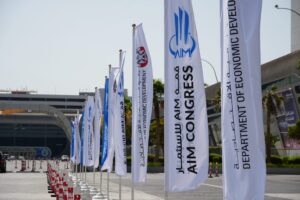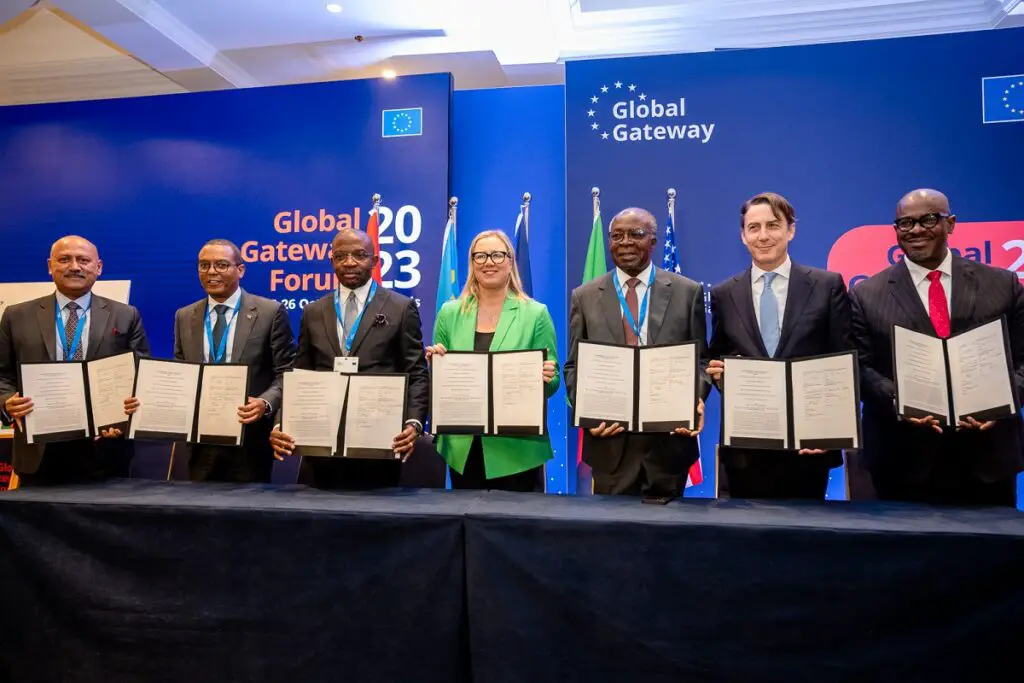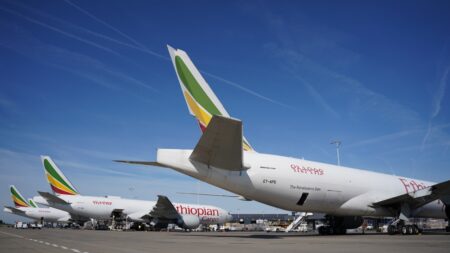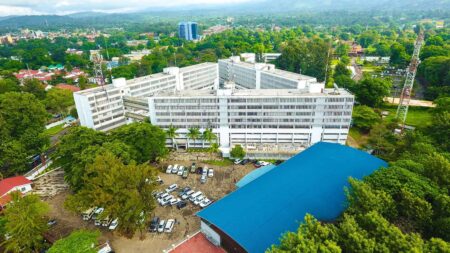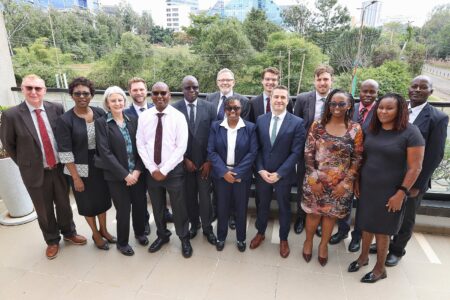- The US and other key partners plan to develop the Lobito Corridor, an economic lifeline for Zambia and neighbouring nations.
- The Lobito Corridor is a transport network connecting northwest Zambia to the Benguela railway and port of Lobito in Angola.
- Once complete, the corridor will enhance the mineral value chain for Zambia, Angola and DRC.
The Lobito Corridor represents a significant transport infrastructure project in Africa. The project will now become a reality with the backing of the US. Moreover, this is one of the projects through which Washington seeks to strengthen its investment ties on the continent.
This project entails a transportation network that links northwest Zambia to Angola’s Benguela railway, ultimately connecting to the strategic Lobito port, the second largest seaport in oil-rich Angola.
More specifically, the project works will entail construction of approximately 550 kilometres of railway. The railway will start from the Jimbe border to Chingola in the Zambian copper belt. This transportation line will also encompass a 260Km system of feeder roads within the corridor.
Seven-aside partners in Lobito Corridor development
Lobito corridor’s development involves collaboration between the Africa Finance Corporation (AFC), the US, the European Union, the African Development Bank (AfDB), and the governments of Angola and the Democratic Republic of Congo (DRC). The Memorandum of Understanding (MoU) was signed during the Global Gateway Forum in Brussels, Belgium.
Upon completion, the Lobito Corridor promises to enhance export opportunities for Zambia, Angola, and the DRC, facilitate goods movement, and improve citizens’ mobility.
Helaina Matza, the US State Department’s Partnership for Global Infrastructure and Investment Special Coordinator, acknowledged this project as “the most significant transport infrastructure that the US has helped develop on the African continent in a generation.” The investment is expected to boost regional trade, promote economic growth, and contribute to the vision of a connected, open-access rail network from the Atlantic Ocean to the Indian Ocean.
President Ursula von der Leyen of the European Commission emphasised the significance of the Global Gateway initiative, highlighting its role in supporting sustainable and resilient value chains for critical raw materials and creating quality local jobs. The Lobito Corridor expansion is anticipated to significantly impact regional and global trade.
The crucial role of the Global Gateway strategy
The Global Gateway strategy is set to assume a central role in bolstering the initiatives within the partnership on critical mineral value chains with the DRC and the sustainable raw materials partnership with Zambia.
Consequently, the Lobito Corridor project aligns with the broader vision of the Biden Administration’s Partnership for Global Infrastructure (PGI) and the EU’s Global Gateway Initiative. It underscores the commitment of all partners to sustainable growth and Africa’s transformation.
Following the signing of the MoU, AFC will collaborate with stakeholders to launch feasibility and preparatory studies for the Lobito Corridor. This will mark a crucial step towards this extensive infrastructure project’s commencement later this year.
Samaila Zubairu, President and CEO of AFC, affirmed their commitment to successfully implementing this vital initiative. “AFC remains committed to collaborating with all parties as lead project developer on the expansion of the Lobito Corridor,” said Samaila. “There is an urgent need for transport infrastructure on the continent,” added Samaila.
The Lobito Corridor project presents a transformative opportunity to enhance regional connectivity. It also offers an opportunity to unlock critical mineral supply chains, promote trade, create local jobs, and drive Africa’s economic growth.
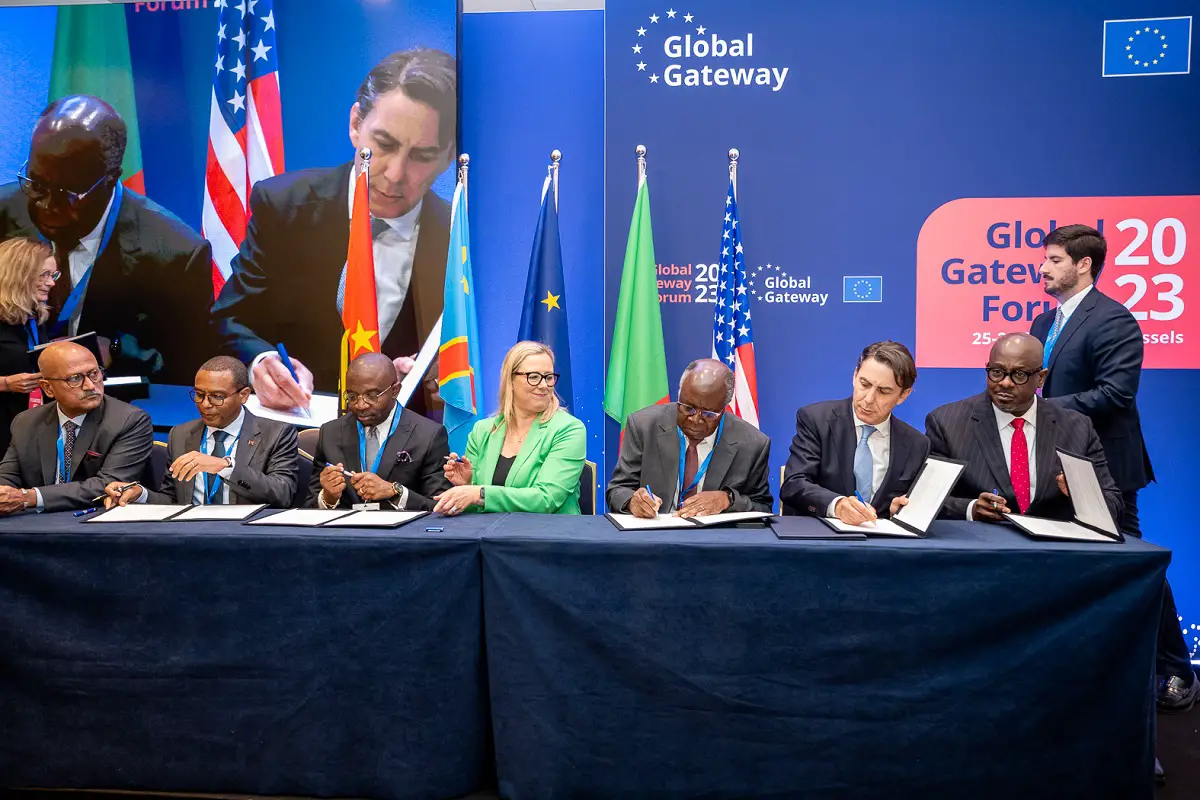
AFC mobilising finance at scale
“AFC will leverage its expertise in de-risking projects and mobilising financing at scale to ensure the successful implementation of this vital initiative. We will do so while meeting the expectations of our private shareholders and our government partners,” added IFC CEO
Key representatives, including US Deputy Assistant to the President for Energy & Investment Amos Hochstein, EU Commissioner for International Partnerships Jutta Urpilainen, Angolan Minister of State for Economic Coordination José de Lima Massano, the Prime Minister of DRC, Minister Jean-Michel Lukonde, Zambian Minister of Finance and National Planning Situmbeko Musokotwane, AfDB Vice President Solomon Quaynor, and AFC’s Sanjeev Gupta, Board Member and Head of Financial Services signed the MoU.
AFC’s Gupta said, “This is an important milestone for the AFC—in many ways historic. This MoU demonstrates the premise of our model, that African project development expertise and African capital can be the enabler to crowding in global public and private financing to meet Africa’s vast infrastructure needs.”
AfDB plans to contribute approximately $500 million to the Lobito Corridor project. The funding will be through a blend of sovereign and non-sovereign instruments, including concessional allocations.
Read also: Trans-African infrastructure: a vital tool to ignite tourism and trade
The Lobito Corridor: A catalyst for Africa’s prosperity
The Lobito Corridor expansion project embodies the transformative power of partnerships and international collaboration. At its heart, it carries a shared vision of a more prosperous Africa. It ensures seamless movement of goods and people across the continent becomes a reality.
With the AFC at the helm of this dynamic partnership, the project testifies to the opportunities awaiting Africa. These opportunities hold the promise of delivering a positive impact on regional growth, job creation, and the enhancement of livelihoods.
In Angola, the Lobito Corridor is more than a mere transportation route. It is a lifeline that connects 40 per cent of the country’s 35 million population. Large-scale investments in agriculture and retail in Benguela, Huambo, Bie, and Moxico, all traversed by the corridor, underscore its significance.
Lobito Corridor’s development represents a considerable step toward socio-economic growth in the region. It offers the potential for employment opportunities and improved living standards for the local population.
Transporting valuable resources
Meanwhile, the Lobito Corridor in the DRC plays a vital role by linking Tanganyika, Haut-Lomami, Lualaba, and Haut-Katanga mining provinces. DRC transports copper concentrates from these provinces to Zambia for smelting before exporting to international markets. Lobito Corridor, therefore, emerges as a strategic conduit for efficiently transporting these valuable resources. It essentially offers the DRC greater access to overseas markets. Overall, Lobito Corridor offers the DRC the opportunity to maximise the value of its natural wealth.
The Lobito Corridor project serves as a beacon of hope for Africa. It also exemplifies how collaborations and international partnerships can create an environment ripe for socio-economic development. As the AFC guides this initiative towards fruition, it signifies the promise of a brighter future for the continent. Once complete, the corridor will enhance regional growth, job opportunities, and the overall improvement of livelihoods.
Read also: Middle East, Asia banks raise funds for Africa’s infrastructure
